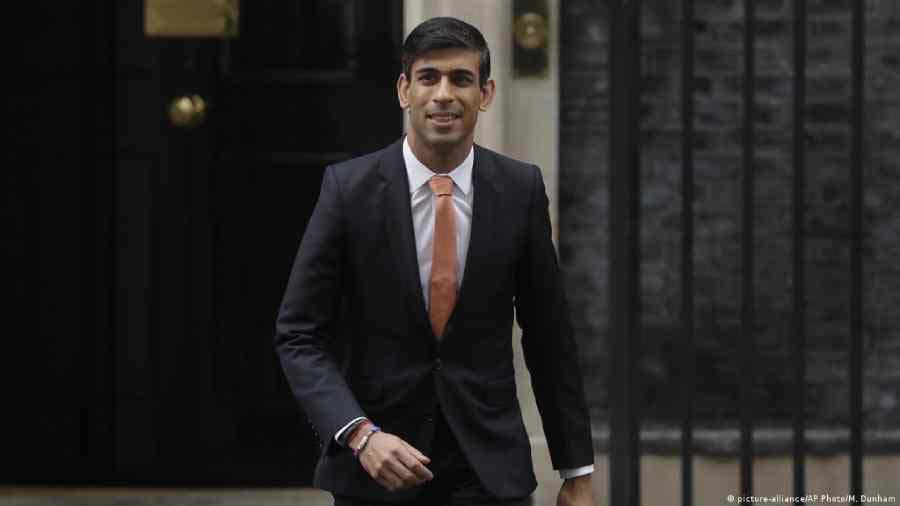
Rishi Sunak, the Chancellor of the Exchequer in the United Kingdom, has become a household name in recent years for his role in stabilizing the country’s economy, particularly during the COVID-19 pandemic. Sunak’s meteoric rise to power has made him a subject of fascination among the British public and the global financial community, alike. His policies, vision and successful implementation set him apart from his peers and politicians from around the world.
Early Career
Rishi Sunak was born to Indian parents in Southampton, England, in 1980. He was educated at Winchester College before studying philosophy, politics and economics at Oxford University. After completing his studies, he embarked on a successful career in finance, working for Goldman Sachs and the hedge fund, The Children’s Investment Fund Management, before co-founding his own investment firm, Theleme Partners, in 2010.
Political Career
Rishi Sunak entry into politics came in 2015 when he was elected as a Member of Parliament (MP) for the Conservative Party, representing the constituency of Richmond (Yorkshire). He quickly rose through the ranks, becoming a junior minister in the Ministry of Local Government and then the Minister of State for Housing, Communities and Local Government. In February 2020, he was appointed as Chief Secretary to the Treasury, a role that saw him work alongside the then-Chancellor, Sajid Javid.
It was only a few weeks later, however, that Sunak was thrust into the limelight when Javid resigned following disagreements with Prime Minister Boris Johnson. Johnson shocked many by appointing Sunak as Javid’s successor, making him the youngest Chancellor of the Exchequer in almost 150 years. Sunak immediately set to work formulating the Government’s response to the COVID-19 pandemic.
Right Path
As the pandemic spread rapidly across the UK, Sunak announced a series of unprecedented measures designed to protect jobs and businesses, and support the economy as a whole. Perhaps his most notable move was the introduction of the Coronavirus Job Retention Scheme, which allowed employers to furlough workers and receive Government grants covering 80% of their wages. The scheme was credited with saving millions of jobs and played a crucial role in prevent mass unemployment at a time of tremendous economic uncertainty.
Sunak’s approach was praised for its clarity and straightforwardness. In a series of press conferences and interviews, Sunak explained his policies in clear and concise terms that were accessible to the general public. This helped to create a sense of trust and confidence in the Government’s ability to manage the crisis.
Despite being relatively new to the role, Sunak also earned a reputation for his pragmatism and willingness to adapt. When it became clear that the initial support measures did not go far enough, he quickly launched a series of new initiatives, including the Self-Employment Income Support Scheme, which provided financial assistance to self-employed workers who had been adversely affected by the pandemic.
But Sunak’s policies were not universally popular. Some critics argued that the Government had not gone far enough in its support measures, particularly for small businesses and freelancers. Others suggested that the Job Retention Scheme was not sustainable in the long term and that it would be difficult to wean workers and businesses off the scheme without causing mass redundancies.
Inspired other’s
Despite the challenges, Sunak remained resolute in his commitment to support the economy throughout the pandemic. He announced a series of measures in the Summer Economic Update designed to kick-start the economy, including a temporary reduction in VAT for the hospitality and tourism sectors, the introduction of the Eat Out to Help Out scheme, and a £2 billion Kick start Scheme to support young people at risk of long-term unemployment.
As the pandemic subsided somewhat in the latter part of 2020, Sunak turned his attention to the longer-term economic challenges facing the country. He announced a comprehensive Spending Review that committed significant funds to public services such as health, education, and infrastructure. He also announced a new National Infrastructure Strategy that aims to create jobs and drive economic growth through investment in green energy, transport, and housing.
Sunak’s vision for the UK post-COVID-19 is centered on creating a strong, dynamic and innovative economy that is equipped to face the challenges of the future. He has spoken of the need to embrace new technologies, create a highly skilled workforce, and invest in the green economy to transition the UK to a low-carbon future.
Conclusion
Rishi Sunak is a politician who has made a significant impact in a relatively short period. Though his tenure as Chancellor has coincided with one of the most challenging times in modern history for the UK economy, he has earned praise for his leadership, clarity, and adaptability. Sunak has shown himself to be constantly innovating and solution oriented working to revamp and regenerate the economy. With a clear and ambitious vision for the future and an impressive track record of delivering on his commitments, it’s no wonder that he is widely regarded as one of the most promising politicians in the UK today.
